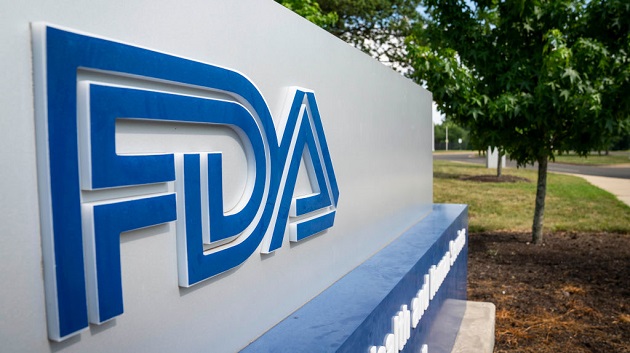(WASHINGTON) — The U.S. Food and Drug Administration and the Federal Trade Commission have jointly issued warning letters to six companies that they say illegally sold copycat food products that look like regular candies and snack foods, but contain edible Delta-8 tetrahydrocannabinol, or THC.
“These products can easily be mistaken for traditional foods like chips, cookies, candy, gummies or other snack food items,” the FDA said in a statement. “The FDA is concerned that these products can be accidentally ingested by consumers, including children, or taken in higher doses than intended.”
In a separate statement, the FTC said it sent cease and desist letters “after reviewing online marketing for Delta-8 THC products sold by the six companies” and determining that “their advertising may violate Section 5 of the FTC Act, which prohibits unfair or deceptive acts in or affecting commerce, including practices that present unwarranted health or safety risks.”
The letters were sent to Delta Munchies, Dr. Smoke LLC, Exclusive Hemp Farms/Oshipt, Nikte’s Wholesale LLC, North Carolina Hemp Exchange LLC and The Haunted Vapor Room.
ABC News has reached out to the companies for comment on the matter but did not immediately hear back from some of them.
In a statement to ABC News, North Carolina Hemp Exchange said the FDA had requested that it no longer sell “four specific products,” and that it had complied with that request, immediately removing the items from its website and retail locations.
“Our response was immediate and in full cooperation with the FDA’s request,” manager Diane R. Becker stated. “We understood their concern about the packaging of those particular products and relayed their concerns to the vendor that sold the products to us. We did not manufacture any of the products.”
Becker said the company would “continue to comply with any requests” from the FDA, emphasizing that the products it pulled this week “are only a small segment of items we sell.”
The cease and desist letters demand the companies “stop marketing edible Delta-8 THC products that imitate conventional foods using advertising or packaging that is likely to appeal to young children,” according to the FTC.
“The FTC also strongly encourages the sellers to review all of their marketing and product packaging for similar edible THC products, and to take swift action and steps to protect consumers, especially young children, from these products,” the agency stated.
Additionally, both agencies have requested the companies respond to the letters within 15 days.
The FDA said it has requested written responses from each company detailing “how they will address these violations and prevent their recurrence,” adding that failure to do so “may result in legal action, including product seizure and/or injunction.”
The FTC said it “has asked each company to contact agency staff within 15 days to detail the specific actions it has taken to address the Commission’s concerns.”
According to the FDA, “Delta-8 THC is a substance found in the Cannabis sativa plant, of which marijuana and hemp are two varieties.” The agency says the substance’s psychoactive and intoxicating effects “may be dangerous to consumers and it has not been evaluated or approved by the FDA for safe use in any context, including when added to food.”
Additionally the FDA said it has “received reports of serious adverse events experienced by people who have consumed these products, such as hallucinations, vomiting, tremor, anxiety, dizziness, confusion, and loss of consciousness.”
“Children are more vulnerable than adults to the effects of THC, with many who have been sickened and even hospitalized after eating ‘edibles’ containing it,” FDA Principal Deputy Commissioner Janet Woodcock, M.D., said in a statement on Wednesday. “That’s why we’re issuing warnings to several companies selling copycat food products containing delta-8 THC, which can be easily mistaken for popular foods that are appealing to children and can make it easy for a young child to ingest in very high doses without realizing it.”
She added, “We’re also concerned that adults could unintentionally take them or take a higher dose than expected and suffer serious consequences. This risk is especially dangerous for those who are driving, working, or have other responsibilities.”
Woodcock added that the products in question “intentionally mimic well-known snack food brands by using similar brand names, logos, or pictures on packaging, that consumers, especially children, may confuse with traditional snack foods.”
Samuel Levine, director of the FTC’s Bureau of Consumer Protection, called marketing of edible THC products in this way “reckless and illegal.”
He said the onus is on companies to ensure their products are “marketed safely and responsibly, especially when it comes to protecting the well-being of children.”
The FDA previously warned consumers in June 2022 about consumption of food products containing delta-8 THC after the agency said it received over 125 adverse event reports from Jan. 1, 2021, through May 31, 2022, related to children and adults who consumed edible THC products.
“Ten of the reports specifically mention the edible product to be a copycat of popular snack foods,” the agency noted this week.
The FDA and FTC have sent similar joint letters to other companies in the past. According to the FTC, the agencies issued warning letters in March 2019 to “three sellers of cannabidiol (CBD), a chemical compound derived from the cannabis plant,” and “sent a second round of letters to three additional CBD sellers in September 2019, warning them that that it is illegal to advertise that a product can prevent, treat, or cure human disease without competent and reliable scientific evidence to support such claims.”
Copyright © 2023, ABC Audio. All rights reserved.












